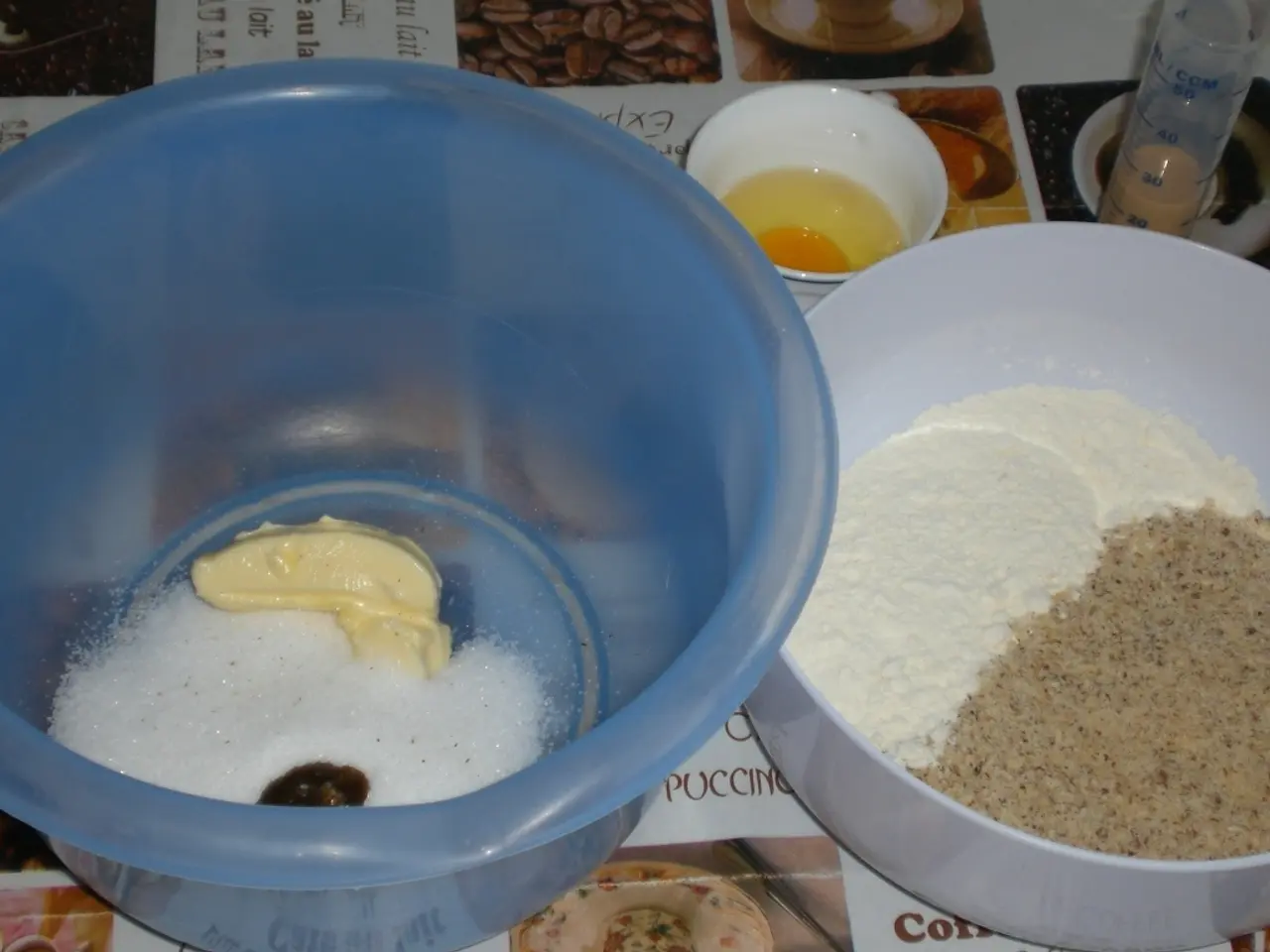Injection therapies for Crohn's disease: A glance at their categories and procedures
Crohn's disease, a type of inflammatory bowel disease, affects millions worldwide. This condition causes irritation and inflammation of the intestines, leading to a range of symptoms. While there is no one-size-fits-all treatment for Crohn's disease, various options are available, including injectable medications.
People with Crohn's disease may take some forms of medications orally and receive various types of injection treatments. In some cases, individuals can self-administer the injections at home after instruction from a healthcare professional.
The different classes of biologic injections used for Crohn's disease treatment include:
- Anti-tumor necrosis factor-alpha (anti-TNF-α) therapies, which block tumor necrosis factor-alpha, a key inflammatory cytokine. Examples are infliximab (Remicade), adalimumab (Humira), and certolizumab pegol. Anti-TNF agents are often used as first-line biologics for moderate to severe Crohn’s disease with a typical induction plus maintenance dosing scheme.
- Anti-interleukin-12 and interleukin-23 therapies, which target the p40 subunit shared by IL-12 and IL-23 cytokines. A key drug in this class is ustekinumab (Stelara). Ustekinumab has shown effectiveness especially in patients who have failed anti-TNF therapies, thanks to its distinct mechanism blocking IL-12/23 pathways.
- Anti-integrin therapies, which block leukocyte integrins to prevent immune cells from entering the gut tissue. A prominent example is vedolizumab (Entyvio), which targets the α4β7 integrin. Vedolizumab offers a gut-selective mechanism that reduces systemic immunosuppression risks, with efficacy in both ulcerative colitis and Crohn’s disease.
These agents are chosen and sequenced based on disease severity, prior response, and patient factors. Combination therapies involving two biologics or a biologic plus a small molecule are emerging options for refractory cases.
It's essential to note that the frequency of injection treatment for Crohn's disease can vary, with some biologicals requiring an injection every 2 weeks and others every 8 weeks. In severe cases, surgery may be recommended, which can involve removing part of the intestine.
If you wish to discuss injections for Crohn's disease, contact your doctor. They will be able to answer any questions you may have and help you make an informed decision about your treatment plan.
In addition to injectable medications, dietary changes and nutritional support may help someone manage their symptoms of Crohn's disease. It's crucial to work closely with your healthcare team to develop a treatment plan that suits your individual needs.
[1] Kappelman MD, Hanauer SB. Inflammatory bowel disease. N Engl J Med. 2015;372(24):2335-2346. doi:10.1056/nejmra1409682
[2] Loftus EV Jr, Hanauer SB. Ustekinumab for induction and maintenance therapy in Crohn's disease. Gastroenterology. 2012;142(3):648-658. doi:10.1053/j.gastro.2011.12.046
[3] Sandborn WJ, Feagan BG, Hanauer SB, et al. Vedolizumab for the induction and maintenance of remission in Crohn's disease. N Engl J Med. 2013;369(23):2231-2241. doi:10.1056/nejmoa1303697
[4] Hanauer SB, Sandborn WJ, Lichtiger S, et al. Therapeutic options for Crohn's disease: current and emerging strategies. J Clin Gastroenterol. 2015;49(6):413-424. doi:10.1097/MCG.0000000000000323
[5] Sandborn WJ, Feagan BG, Loftus EV Jr, et al. Infliximab for the treatment of Crohn's disease. N Engl J Med. 1995;333(18):1187-1194. doi:10.1056/nejm199509213331802
Seekers of effective treatments for chronic diseases, such as Crohn's disease, may consider various therapies and treatments, including biosimilars. These scientific advancements have been developed to provide alternatives to traditional medications, offering potential cost savings while maintaining the same efficacy.
Switchers from one treatment to another may benefit from learning about the different classes of injection treatments available for Crohn's disease management, including anti-TNF-α therapies, anti-interleukin-12 and interleukin-23 therapies, and anti-integrin therapies. Each class targets specific inflammatory mechanisms in the body.
In addition to medications, people with Crohn's disease may find relief through dietary changes and nutritional support, working closely with health care providers to develop a personalized health-and-wellness plan.
It's vital to discuss injection options for Crohn's disease with a medical professional, as treatment frequency and lecture may vary among biologics. In some cases, surgery may become necessary for managing symptoms.
The interdisciplinary approach to treating Crohn's disease involves the cooperation of various medical-conditions specialists, ensuring that patients receive comprehensive care that addresses their individual needs and priorities.




